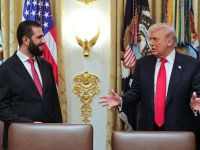AUC’S MBA students qualified to the global final in Hult Global Case Challenge competition

A team of the School of Business’s MBA program at the American University in Cairo (AUC) won second place in the energy track of the Dubai regional finals of the Hult Global Case Challenge (HGCC) and was qualified to the final round in New York. AUC team, of Ahmed Asaker, Ahmed Diab, Mahmoud Omar and Nermine Hashem, were also named "Most Inspiring Team” by competition judges.
HGCC is a call to action for the world's brightest university and college student minds to find innovations to resolve the world's most pressing social challenges. “HGCC brought a new dimension. This time we weren’t just solving a case, we had the chance to address a global cause that impacts millions of lives every day,” said Hashem of her team’s focus on energy.
The 2012 HGCC is themed around global poverty. Teams were able to choose one of three competition tracks to pursue: education, housing and energy tracks. The AUC team was competing in the energy track on behalf of the Solar Aid Foundation, a British NGO. Per the need presented by the foundation, the AUC team presented a sustainable business model for its company "SunnyMoney" that would introduce solar lamps across Africa as a more desirable alternative to kerosene. The team successfully structured a plan to bring solar lamps into 1 million African households by 2013 and to rid the continent of kerosene lamps by 2020. “We devoted considerable time and effort to research on energy. We read many reports about solar energy and companies’ contributions to serve the same cause in similar markets. Interesting and innovative ideas started to flow in our discussions. The challenge was how to turn those ideas into specific and applicable plans,” said Diab.
The competition is played out in two phases: a regional competition and a global final. The regional competition was held in Dubai where teams from business schools from the Middle East, United Kingdom, United States, India, Pakistan, Hong Kong and Singapore competed to develop innovative solutions to the global poverty issue. "It was an enriching and successful experience,” said Omar, “Besides the technical challenges, we got to meet people from across the world: students, judges and organizers. The fact that everyone came and congratulated us for the presentation and our solution was thrilling.”
The judging panel evaluated and selected the AUC team’s winning proposal and sent the students on to compete in the finals in New York City on April 26. “I'm so proud of our MBA students and their achievement in this international competition. These competitions are important for the MBA program as they communicate our program with internationally renowned MBA programs,” said Khaled Dahawy, director of the MBA programs. “In addition, (the success of our students in this competition) tells us that we are on the right track delivering top quality education that compares to the top MBA programs worldwide.”
Last year’s initiative attracted more than 100 colleges and universities from all over the world, including nearly all of the Financial Times top 100 MBA programs. "I had no doubt that our MBA students were at the level to compete with their counterparts from top international programs. I was even more assured when I met with our team and witnessed their passion, quality-driven approach, and determination to come-up with the most sound and practical solution,” said Ahmed Tolba, director of El-Khazindar Business Research and Case Center, “While we are all proud of our students and our program, we need to capitalize on this success and further build a culture of case-solving and practical applications in all our programs," added Tolba who provided the team with technical support and consultation in their project.
Background Information
American University of Cairo
Founded in 1919, AUC is a leading English-language, American-accredited institution of higher education and center of intellectual, social and cultural life of the Arab world. Its community of students, parents, faculty and staff, trustees, alumni and other generous sponsors represent more than 60 countries. The University stands as a crossroads for the world’s cultures and a vibrant forum for reasoned argument, spirited debate and understanding across the diversity of languages, facilities and human experiences.






